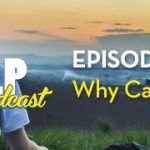Struggling to meditate?
This week Ed and I got to talk about one of my favourite topics, meditation. It has been an interesting issue between us for years. I think Ed would like to be a meditator but just can’t get into it. I guess the fact that I told him years ago that you don’t have to meditate to be mindful gave him the ultimate get out. But it is true. To be mindful is to be someone who is focussed on the present and what they are doing right now. Mindless people have minds that wander all over the place, worry about what was or what will be. Mindful people are calmer and more focussed and generally more effective as people in whatever they do. The way it goes for me is that you do not need to meditate to be mindful yet meditators develop mindfulness as a byproduct of their meditation practice.
Benefits of meditation include, lower blood pressure, less illness both physical and mental and the ability to deal with crisis and situations easier.
Anyway, I found an article looking at the reasons why people have problems meditating and some ways to overcome them. That reminded me of Ed so I sent it to him and we talked about it over on the podcast. In this blog I focus on some of the reason why it would be good to meditate.
First I have to say that I do not like the word meditation as it has too many connotations of a man in a loin cloth sitting under a banyan tree chanting to himself. If we use the phrase mindfulness practice it sounds more like something that you might do while at work or in an airport or mainline rail station.
Rie and I do ten day silent Vipassana meditation retreats. These involve ten days of meditation, eleven hours a day, one hundred and ten hours of mediation during the retreat. Afterwards we are met with a variety of responses. There are those that see us as heroic, having survived some great ordeal! Those that see us as idiots and are in total disbelief or understanding of why anyone would want to do such a thing, and there are those that nod with knowing and understanding.
The question that comes up again and again is why meditate? Well, there are a million reasons why. People that take the time and make the effort to do a ten day sit have many reasons as to why, I can only tell you why I do it and, what it is that I get from doing it and why I continue to meditate everyday.
The first is silence. The world is full of noise and very few people experience peace. From the moment that we wake there are radios, televisions, news, information, things to do, people to see, places to go. Each of us is required to process masses of information.
If you consider the world of your grandparents and great grandparents, there were few or no cars, no computers, no mobile phones, one channel on TV and, three channels on the radio. The only news was the newspaper and news took time to arrive. All things that had to be done took time and happened at a more leisurely pace.
Not so now. Information and information sharing is instant. When the planes flew into the twin towers we were all able to watch it happening in real time. In the Japanese tsunami we watched the waters rush across the land, destroying people’s lives, as it happened. As Syria is being blown apart and engulfed in live sapping chemical weapons we can see the effects immediately. We know about the war and the casualties the instant that they occur.
The bottom line is that the physiologically of the human body that flies jumbo jet and runs the biggest computers is little different to the one that drove the horse and cart several generations ago. People ask me if stress is real and I explain about the amount of information that we now all process and I say “yes”, stress is very real. But as in all things, it is not what we experience that is the issue it is what we do with it that makes the difference. You cannot be stressed without your permission.
The problem is that now we have so much to deal with, so much information to process, and it is easy for us to forget who we are and why we are here. We cease to hear our inner voice and cease to attend to our own needs. In meditation we still the mind, reduce the outside stimulus of everyday experience and, create the inner peace and silence in which we begin to hear the answers to our problems. For many, it is the only time that we might even realise that we have any problems to face.
Both Rie and I teach mindfulness programmes as either Mindfulness Based Stress Reduction (MBSR) and Mindfulness Based Self Coaching or MBSC. As I do this work it becomes clearer to me over time that the real answers to our deepest questions are found within us not without us. All the theoretical teachings of gurus are nothing compared to the hands on, mind off, silence of inner knowledge and understanding that comes from meditation. It is truly life transforming. I see this all the time on the programmes when the common statement from participants is “why didn’t anyone teach us this when we were children?” It seems that many schools are now using Mindfulness sessions in the classroom. I read of one school that had stopped giving children detention and got them meditating instead, amazing!
If we were all to take just a few minutes each day to stop, breathe and be silent, we would literally change the world. This is because the effects of mindfulness and meditation are to give us increased insight and understanding, tolerance and equanimity, it allows us to respond rather than react. Most important of all it gives us choice. We can choose to be happy, we can choose to be miserable, we can choose to moan about life, we can choose to find solutions and so on.
Just taking a little time, be it a few minutes or an hour of meditation, we create a magic space of calm and relaxation that we rarely find in our daily lives anywhere else.
There are many options these day with apps blogs and courses online that enable us to learn how to meditate and develop mindfulness skills.
I have to give a shout out and thanks to Dave Potter at Palouse online who has created the most amazing resource and it is all free. He offers the complete Mindfulness Based Stress Reduction Course online. He has also added so many resources from Ted Talks to scientific papers and an extra session, week 5b that focuses on mindfulness and pain. Go take a look –
There are many benefits in doing the MBSR programme in a live group face to face but if you can’t get to one or can’t afford to attend one Palouse is amazing. Even if you have completed a face to face MBSR or MBSC programme it is still worth a look and enjoying the many resources that Dave offers.
Take care, be happy,
Sean x



Trackbacks & Pingbacks
[…] Here’s Sean’s blog post for the week […]
[…] Here’s Sean’s blog post for the week […]
Leave a Reply
Want to join the discussion?Feel free to contribute!